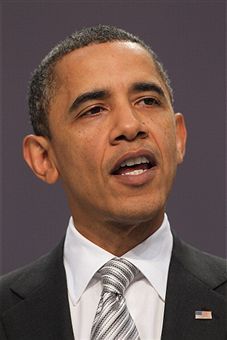 Over the last decade, Wall Street has become an important foreign policy actor in its
own right, almost as important as the lobbyists on K-Street and the White House on Pensylvania Avenue. The ebb and flow of capital has been a decisive international force in determining the fate of
nations – most recently illustrated in the cases of Greece and Ireland. As an aide to President Clinton once said: in a second life he would like to come back as the bond market.
Over the last decade, Wall Street has become an important foreign policy actor in its
own right, almost as important as the lobbyists on K-Street and the White House on Pensylvania Avenue. The ebb and flow of capital has been a decisive international force in determining the fate of
nations – most recently illustrated in the cases of Greece and Ireland. As an aide to President Clinton once said: in a second life he would like to come back as the bond market.
But Wall Street has influenced foreign policy in a deeper way too: by changing the way that successive US administrations see the world. Not by focusing on the bottom-line. International relations cannot be reduced to cost/benefit analyses. But by making the US look at partners the way Wall Street looks at companies – by growth rates and future share of markets rather than history and market capitalisation.
So, European allies are boring. While they represent the world’s largest market, they are not growing rapidly like China. China, in turn, is exciting because of the expectation of continued expansion. The same could be said of Brazil, Russian India.
This obsession with growth, which has been transplanted from Wall Street to Washington, speaks to something deep in the US national psyche: it recalls the pioneer spirit America was built on. China, Brazil, India and Turkey are brash, loud, young and colourful – much as the US likes to see itself. Europe is, by contrast, conservative, monochrome, old and uninteresting; it has accordingly been relegated in the US hierarchy of interests.
As Mark Leonard puts it: the US has become a part-time European power for the first time since 1916. The US president could for example not bother to come to Spain to meet European leaders last year. Early on, the concerns of eastern Europe about Russia’s aggressiveness we’re given the presidential “talk to the hand” sign: a visit by Vice-President Joe Biden.
But the Obama administration is slowly discovering (to paraphrase the old saying) that all that grows ain’t gold. Though China and the other BRICs remain important these countries cannot be relied on to pursue policies which safeguard the US for example on Iran or the US dollar. For that, the US needs old allies in Europe.
When Barack Obama came to power much was made of his post-European (or, as some argued in Standpoint, his anti-European) viewpoint. But in the last two years of his (first) term of office, things will change. The US will continue to court the BRICs, but as US strategist Joseph Nye says in the latest issue of Foreign Affairs: “Europe (and Japan) provide the largest pools of resources for dealing with common transnational problems”. There may be no bell to sound the end of the Wall Street worldview, like the one that opens NYSE. But make no mistake: it is quickly ending.






Comments